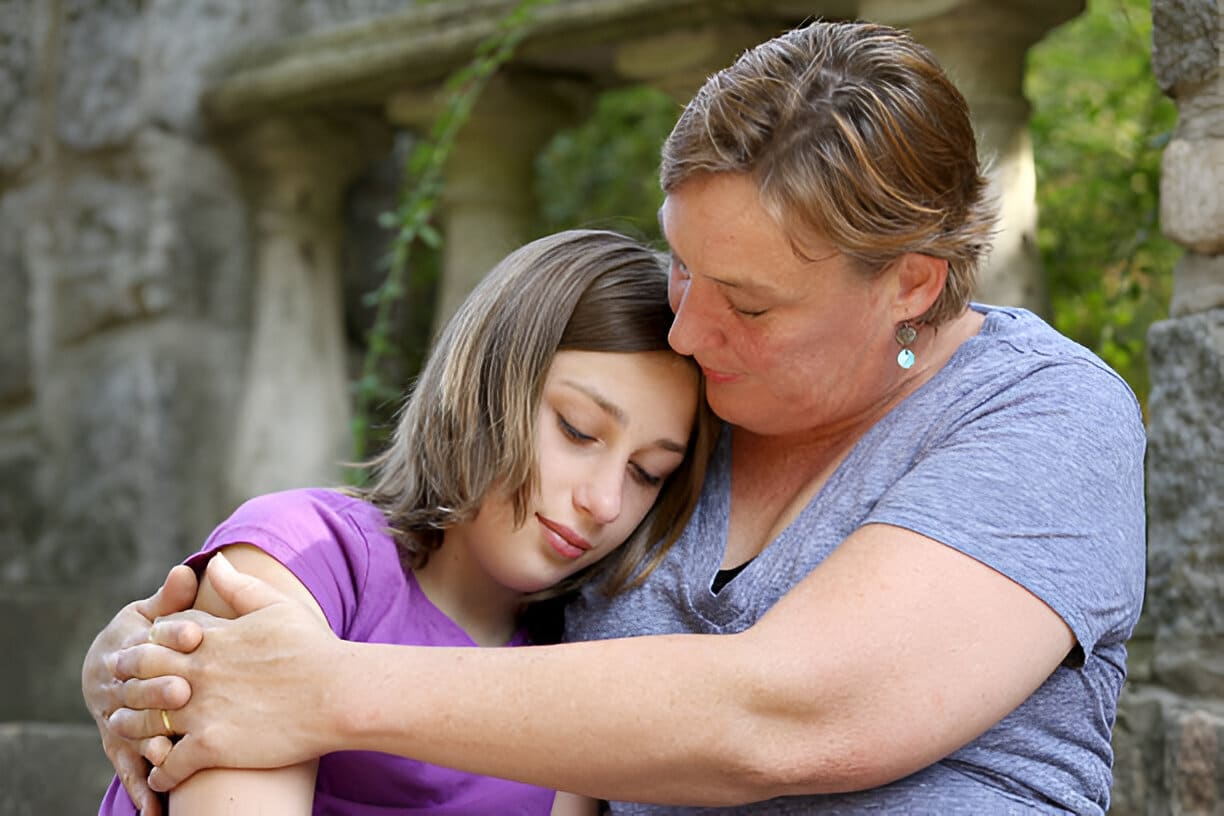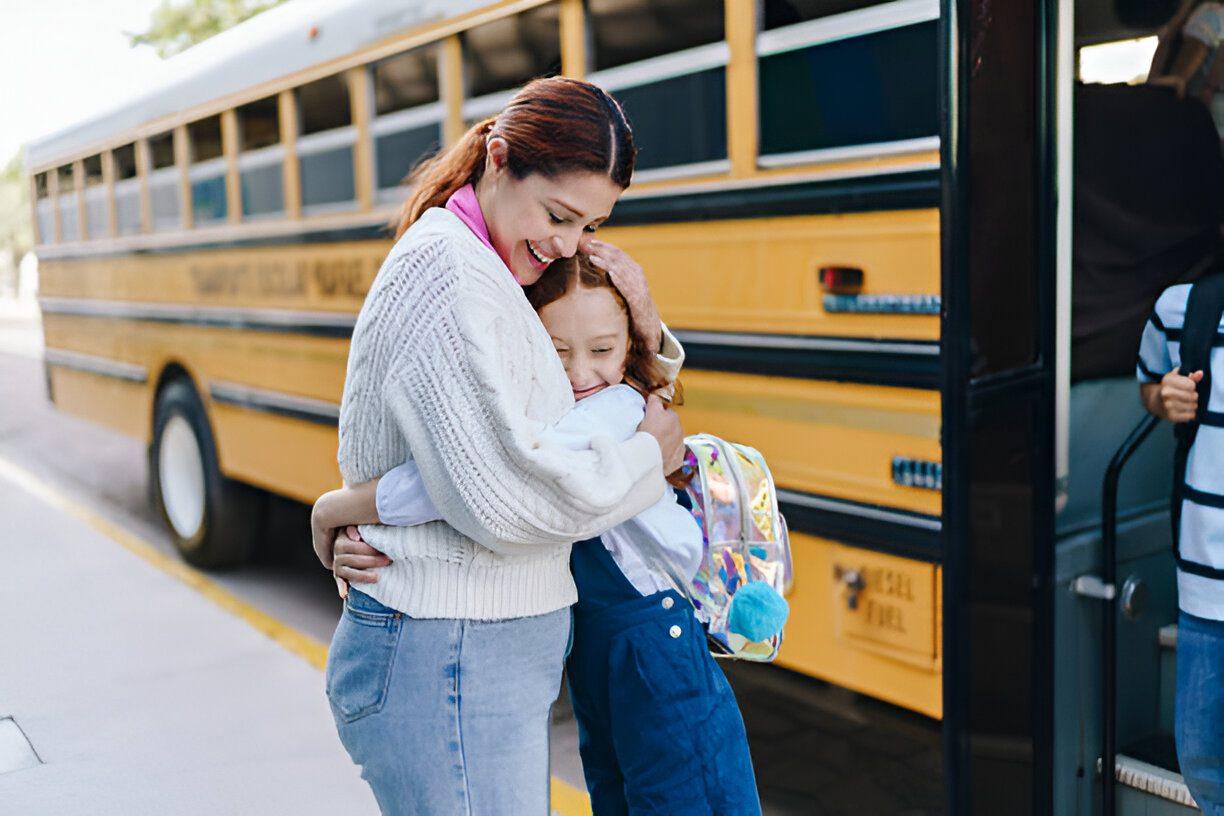Introductory
Grief, for parents, is a unique journey. Balancing the weight of personal loss while guiding children through their emotions is both a challenge and an act of profound love. Understanding this dual role is essential for healing together as a family.
This guide offers compassionate advice for parents navigating their grief while being a source of strength for their children.
“I once heard a mother describe grief as carrying a heavy backpack—its weight shifting unpredictably. Sometimes, it’s unbearably heavy; other times, it lightens just enough to let her move forward. For parents, the challenge lies in carrying this burden while guiding their children through their own grief. Balancing these roles is daunting but also an opportunity to model resilience and deepen family connections.”
Acknowledging Your Grief

Before you can support your children, you must honor your own grief.
- Recognize Your Feelings: Accept that you’re hurting. Acknowledging your pain is the first step toward healing.
- Permission to Grieve: Society often expects parents to remain strong, but true strength lies in vulnerability. Allow yourself to feel and express your emotions.
Key Themes in Supporting Grieving Students
Communication Is Key
Balancing Personal and Family Grief
Juggling your own grief while caring for your children can feel overwhelming, but it’s essential to find balance.
- Set Boundaries: Take moments for yourself when needed. Explain to your children why these moments are important and assure them of your continued love.
- Share Grief: Mutual grieving—sharing stories, looking at photos, or simply crying together—can be deeply healing for both you and your children.

“Being honest about my grief didn’t weaken me as a parent,” one father shared. “It showed my kids that it’s okay to be human.” – Robert T
Strategies for Self-Care
Your well-being directly influences your ability to support your family.
Routine Care
- Establish small rituals, like a morning walk, journaling, or quiet evening reflection. These moments create stability amidst the chaos of grief.
Seek Support
- Grief counseling or therapy provides tools to process your emotions and stay present for your children.
Physical Wellness
- Grief often impacts physical health. Prioritize balanced meals, hydration, and sleep to maintain your strength.
Communicating with Your Children
Children look to parents for cues on how to navigate difficult emotions.
- Be Honest: Share your feelings in an age-appropriate way. For example, say, “I feel sad because I miss them, and it’s okay to feel this way.”
- Reassure Them: Let your children know that your grief doesn’t change your love or ability to care for them.
- Encourage Comfort: Allow your children to offer support if they wish. This mutual care reinforces a sense of connection.
Navigating Triggers and Memories
Life after loss is full of reminders, and each family handles them differently.
- Plan for Milestones: Birthdays, holidays, and anniversaries can be emotionally charged. Consider creating new traditions that honor your loved one, like lighting a candle or sharing favorite memories.
- Decide on Reminders: Some families find comfort in displaying photos or keepsakes, while others may need time before revisiting them.
Building a Support Network
Grief can feel isolating, but you don’t have to navigate it alone.
- Lean on Others: Friends, extended family, or community members can provide practical help and emotional support.
- Find Understanding: Support groups for grieving parents offer a safe space to share experiences and gain insights from others who understand your journey.
Long-Term Healing
Grief doesn’t have a timeline. It evolves, sometimes quietly and other times in waves.
- Patience with Progress: Healing is not linear. Some days will feel manageable, while others may bring unexpected pain. Be gentle with yourself through these fluctuations.
- Model Resilience: By navigating grief openly, you teach your children how to face life’s challenges with courage, empathy, and grace.
Things To Try This Week!
- Create a Memory Box: Collaborate with your children to fill a box with items that remind you of your loved one, such as photos, letters, or small mementos.
- Set a Grief Break Time: Designate 10–15 minutes daily for reflection or expressing your emotions. Use this time to write, meditate, or simply sit quietly.
- Plan a Family Activity: Choose a simple, bonding activity like cooking a favorite meal, going for a walk, or playing a game to create positive moments together.
Conclusion
Parenting through grief is one of life’s greatest challenges, but it’s also an opportunity to grow closer as a family. By embracing both vulnerability and strength, you create a space for healing—where love persists even in the presence of loss. Together, you and your children can find a new rhythm, honoring the past while making room for hope and joy.
Remember, it’s not about erasing the pain but learning to live alongside it, creating a life where love and loss coexist.
Cherishing Family Moments: Love Beyond Loss
Grief reminds us of the precious moments we share with our loved ones.
Whether it’s through meaningful keepsakes, shared experiences, or thoughtful gifts, honoring your family’s bond can bring comfort and joy. Explore ways to cherish and celebrate those closest to your heart.
Finding Comfort, One Heartfelt Step at a Time
No matter where life takes you, caring for your emotional well-being should always have a place in your daily routine. Our All Things Cherish collection offers soothing keepsakes, reflective prompts, and heartfelt resources crafted to nurture hope in every season. Let us walk beside you on the path to renewed strength and lasting peace—click here to explore and embrace all that cherishing yourself can bring.
Cherish Parents: Honoring Their Legacy with Love
Parents leave an irreplaceable mark on our lives. Celebrate their legacy with our “Cherish Parents” collection, featuring thoughtful keepsakes and ways to preserve their memory for generations to come.
More Reflections, More Growth
Loss is complex, and the road to healing is different for everyone. These reflections offer insight, support, and guidance as you navigate this journey.
Daring to Dream Again: Rebuilding Hope After Loss
Building new dreams after loss is a journey of courage and growth. Explore how to honor the past while creating aspirations that reflect your evolving self and potential.
When Hopes Fall Short: Coping with Lost Dreams and Aspirations
The grief of lost dreams runs deep, touching our identity and purpose. Explore how to process this loss, find resilience, and embrace new opportunities for growth.
Letting Go of What Might Have Been: Grieving a Lost Future
Grieving an imagined future is a silent, often unspoken sorrow. This guide explores how to navigate the loss of unfulfilled dreams, embrace resilience, and forge new possibilities.
When Loss Shapes Who We Are: Embracing an Identity Tied to Grief
Loss often becomes a defining thread in the fabric of our identity. This article explores how grief shapes who we are, offering pathways to integrate loss, foster growth, and embrace resilience.
Becoming Beyond Loss: Grieving the Person You Used to Be
Grieving the loss of who you were is a deeply human experience. Explore how to honor your past self, embrace transformation, and create a fulfilling new identity in the wake of life changes.
Honoring the Legacy of a Grandparent
Grandparents shape our lives through love, wisdom, and values. Learn meaningful ways to honor their legacy, preserve memories, and carry their impact forward.
Navigating the Waves of Grief: Helping Children Cope with Grandparent Loss
Supporting a child through the loss of a grandparent is a journey of love, patience, and compassion. This guide offers age-appropriate strategies to help children grieve while preserving cherished memories.
Finding Comfort After Losing a Grandparent
Grieving a grandparent is deeply personal. This guide offers compassionate advice to help you find comfort, honor their memory, and carry their love forward.
Supporting Grieving Students in the Classroom: A Teacher’s Guide
Grief in young students often appears as confusion, withdrawal, or even unexpected bursts of emotion. Teachers, as pillars of stability, can make a profound difference. This guide offers practical strategies, heartfelt insights, and tools to create a compassionate classroom where grieving children feel supported and understood.”
Explore Journeys of Healing and Solace:
Discover dedicated spaces that offer understanding, guidance, and connection through grief. From the loss of loved ones to life’s challenging transitions, each category provides a pathway to reflect, connect, and find peace in shared experiences.



























